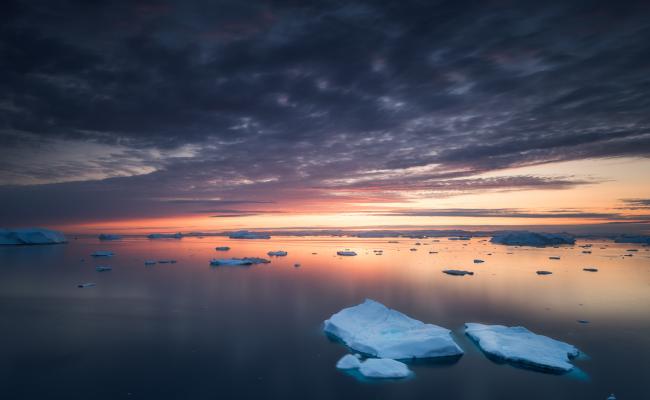Rapid Arctic Warming Accelerates Permafrost Collapse, New Report Warns

Sir David King is the founder and chair of the Centre for Climate Repair at Cambridge University. "There is no greenhouse gas budget remaining in our atmosphere", said King about the report by Climate Crisis Advisory Group (CCAG). (Credit: Climaterepair - Own work, CC BY-SA 4.0/commons wikimedia.org)
A new report warns of the significant global impacts of Arctic warming, and calls for urgent Arctic repair to ensure the world remains habitable for future generations.
A new report by Climate Crisis Advisory Group (CCAG) warns of the significant global impacts of Arctic warming, and calls for urgent Arctic repair to ensure the world remains habitable for future generations.
The report, released Thursday, states that the Arctic is a “ground zero” for cascading climate impacts across the planet, and is now experiencing several “never before” events, with profound and complex impacts on our planet’s ecosystem such as rising sea levels and extreme weather incidents.
It is the second report from the CCAG, a newly-formed independent international group of experts from a range of climate-related disciplines.
Raised global sea levels
The report states that, over the last 30 years the Arctic has warmed at a rate of 0.81°C per decade, more than 3 times faster than the global average of 0.23°C per decade. This has resulted in rapid and sea ice loss, as well as loss from the Greenland ice sheet.
According to the report, the sheer scale of sea-level rise produced by the Greenland and Antarctic ice sheets will dwarf current dangers as warming and melting continues; there is enough ice in the Greenland ice sheet alone to raise global sea levels by 7.5 metres.
Also read
Alongside this, if greenhouse gas emissions continue to increase at their present rate, tens to hundreds of billions of tonnes of carbon, locked in the planet’s permafrost, could be released into the atmosphere. As it stands, the warm weather conditions conducive to permafrost thawing are already occurring roughly 70 years ahead of model predictions.
Carbon release
“Our report shows that the evidence demonstrates that extreme weather events are increasing in intensity and frequency largely because of the rapid melting of the Arctic ice and amplification of warming here", said Sir David King, Chair of CCAG in a press release.
If greenhouse gas emissions continue to increase at their present rate, tonnes of carbon, locked in the planet’s permafrost, could be released into the atmosphere.
The report also finds that the rapid warming and melting in the Arctic is likely a “major trigger” resulting in devastating changes to our weather systems. This has been witnessed with the recent deadly extremities caused by heatwaves and floodings to countries such as the USA, Canada, Germany and China.
"Not well understood"
"The systematic occurrence of extremes across the world in 2021 cannot be explained only by the 1.2°C of global warming we have caused so far. Either we have experienced unthinkable bad luck - or there is something else at play. And the candidate is the accelerated warming and ice melt in the Arctic, slowing down the Northern Jetstream. This has made weather systems stationary causing more rain and more heat, and is slowing down the ocean conveyor belt of heat in the North Atlantic, impacting on regional weather in Europe and the monsoon systems over the Tropics", said Professor in Earth System Science, Johan Rockström, Director of the Potsdam Institute for Climate Impact Research, in the press release.
"Not only is this happening at lower global warming than anticipated, the impacts are more severe than expected. In short, what is happening now is not well understood. It raises deep concerns though. And, we know enough to urgently pull the break on fossil fuels and destruction of nature", Rockström adds.
The Group believes we need agile international political and financial action to mitigate the consequences of climate change through Reduction, Removal and Repair measures:
-
Reduce: Deep and rapid emissions reduction
-
Remove: Removing GHGs from the atmosphere at scale
-
Repair: Refreezing the Arctic region
The Group stresses that immediate concerted action is needed at all levels of global society and governance.




